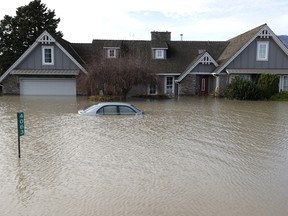
On May 4, 2025, as the nation grappled with one of the deadliest climate-driven disasters in recent memory—an outbreak of severe storms and tornadoes that left 100 people dead across several U.S. states—a new concern emerged: the possible defunding or loss of a key U.S. climate report that has guided disaster preparedness and planning for decades.
The tragedy, unfolding in real time, has made it painfully clear how vital accurate climate data and forecasting are to saving lives. But behind the scenes, funding cuts and political infighting threaten to delay or even halt the release of the next **National Climate Assessment (NCA)**—a congressionally mandated report that provides the most comprehensive analysis of climate trends in the United States.
### The Role of the National Climate Assessment
The NCA, produced roughly every four years by the U.S. Global Change Research Program (USGCRP), is a cornerstone of national climate strategy. It synthesizes the latest science on how climate change affects health, infrastructure, agriculture, energy, and disaster risk. Emergency planners, state officials, insurance companies, and even the military rely on it for decision-making.
Without this report, communities face the future blindfolded—especially as disasters like floods, wildfires, and heatwaves become more frequent and intense.
### A Deadly Reminder
The May 2025 tornado outbreak, which affected parts of Oklahoma, Missouri, and Illinois, is the deadliest U.S. weather event in five years. Winds exceeded 160 mph, and entire towns were flattened in minutes. In some areas, advanced warnings based on climatological models and real-time forecasts helped save lives. But in others—especially where infrastructure was poor or emergency planning was outdated—people had no time to react.
The 100 recorded deaths have reignited debate over climate readiness and the tools we use to prepare.
### What Happens If the Report Is Lost?
Losing the National Climate Assessment would be more than a bureaucratic failure—it would be a blow to public safety. The data contained in the NCA is used not only by scientists but also by local governments to create flood maps, evacuation routes, and zoning policies. Without it, decision-makers lose one of their most trusted sources for planning ahead.
Additionally, funding cuts would impact NOAA, FEMA, and other agencies that contribute to the report, leaving them scrambling to maintain operations with less insight and fewer resources. It would be like trying to navigate a hurricane with outdated radar.
### Politics vs. Preparedness
Some lawmakers have argued that the NCA has become too politically charged or too focused on climate threats. But experts warn that silencing or delaying the report could cost lives, especially as the U.S. continues to face extreme weather events at record frequency.
Climate scientists and emergency officials have urged Congress to protect the NCA’s funding and autonomy. “This isn’t about politics—it’s about protecting people,” one NOAA official said.
### Moving Forward
As the nation mourns 100 lives lost in a disaster that may have been worsened by a changing climate, the debate over information and action becomes more urgent. Science is only useful if it’s shared and applied. Losing a climate report now would be not just unfortunate—it would be dangerous.
Would you like a version of this as an op-ed or infographic for easier sharing?

Be the first to comment